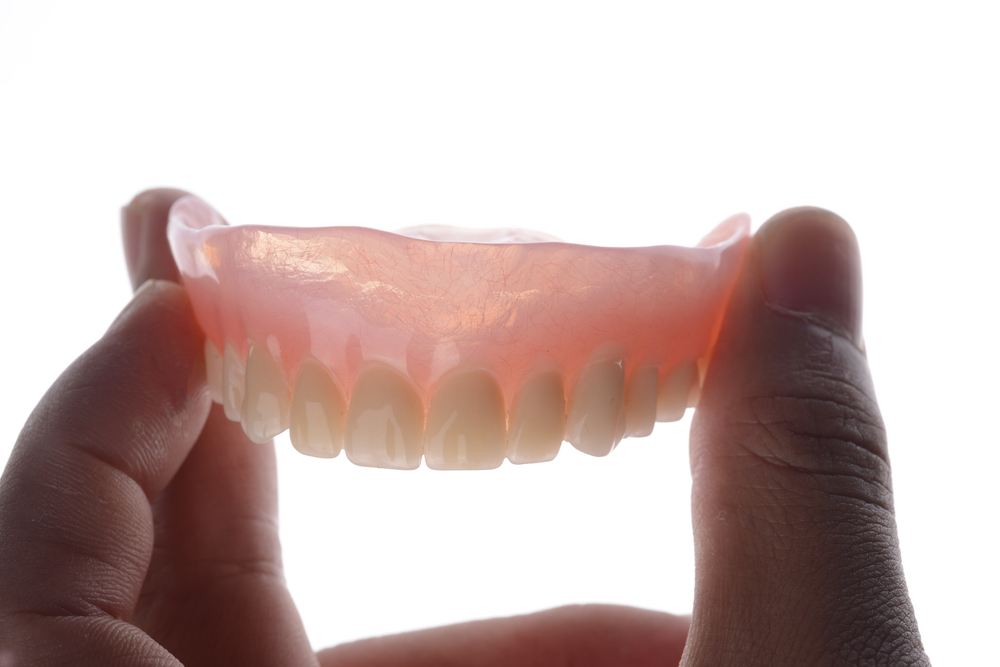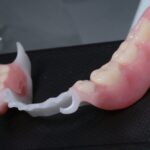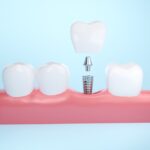First Denture Reline
A well-fitting denture is essential for comfort, functionality, and oral health. Over time, changes in your gum and bone structure can cause dentures to become loose, leading to discomfort and difficulty eating or speaking. A denture reline is a cost-effective way to restore the fit of your dentures without having to replace them entirely. If you’re considering your first denture reline, this guide provides everything you need to know, including the process, types, and benefits.
What is a Denture Reline?
A denture reline is a process that adjusts the fit of your dentures by adding a new layer of material to the inner surface. This ensures the denture conforms to your current oral structure, improving comfort and stability. Relining is often recommended when:
- Dentures feel loose.
- Sores or irritation develop.
- Eating and speaking become difficult.
- Significant gum or bone changes occur over time.
Why Do Dentures Need to Be Relined?
As you wear dentures, the underlying bone and gum tissue naturally shrink, a process called resorption. This causes the dentures to lose their snug fit. A reline helps adapt the denture to these changes, ensuring they remain functional and comfortable.
Types of Denture Relines
There are three main types of denture relines, each serving a specific purpose:
1. Hard Reline
A hard reline involves using durable acrylic material to adjust the denture fit. This type of reline is long-lasting and provides a more stable solution for loose dentures. Hard relines are typically done in a dental lab and are suitable for most denture wearers.
2. Soft Reline
Soft relines use a pliable, cushion-like material, making them ideal for individuals with sensitive gums or those prone to irritation. The soft material provides added comfort, though it may need more frequent adjustments.
3. Temporary or Therapeutic Reline
Temporary relines are often used when the gums are inflamed or sore. The dentist applies a softer material to allow the gums to heal before proceeding with a permanent solution.
The Process of a Denture Reline
1. Evaluation
Your dentist examines your mouth and dentures to determine if a reline is necessary and which type is most suitable.
2. Impression Taking
An impression of your gums is taken to ensure the relined denture fits your current oral structure.
3. Material Application
The dentist applies the chosen material to the inside of the denture and refines it to create a secure fit. For hard relines, the denture may be sent to a dental lab for processing.
4. Final Adjustments
Once the reline is complete, the dentist ensures the denture fits comfortably and makes any necessary adjustments.
Benefits of a Denture Reline
1. Improved Comfort
Relining helps eliminate discomfort caused by loose dentures, sore spots, or irritation.
2. Enhanced Functionality
A well-fitting denture allows for easier chewing and clearer speech.
3. Better Oral Health
Relining reduces the risk of gum irritation, sores, and infections caused by poorly fitting dentures.
4. Cost-Effective Solution
A reline is less expensive than replacing dentures entirely, making it a practical option for many individuals.
Signs You Need a Denture Reline
Consider scheduling a denture reline if you experience any of the following:
- Difficulty keeping dentures in place.
- Frequent gum sores or discomfort.
- Changes in your facial appearance due to bone loss.
- Clicking sounds or movement of dentures while speaking or eating.
How Often Should Dentures Be Relined?
The frequency of denture relines depends on factors such as your oral health, gum changes, and the type of dentures you wear. On average, most dentures require relining every 1-2 years to maintain a proper fit. Regular dental check-ups can help determine the best timing for your reline.
Caring for Your Relined Dentures
After a reline, follow these care tips to ensure your dentures stay in great condition:
- Clean Daily: Use a soft brush and non-abrasive cleanser to clean your dentures.
- Avoid Harsh Chemicals: Skip toothpaste or household cleaners, which can damage the denture material.
- Soak Overnight: Store your dentures in water or a denture solution to keep them moist and maintain their shape.
- Regular Dental Visits: Schedule routine appointments to monitor the fit and health of your dentures and gums.
Westwood Gardens Dental Clinic: One of the best dental clinics in Richmond Hill, Ontario
For those in Richmond Hill, Ontario, Westwood Gardens Dental Clinic is a trusted provider of high-quality dental care, including partial dentures. Call them today at 647-905-7303 or email info@westwoodgardens-dental.ca to schedule a consultation. You can also visit their clinic at Unit 18, 8868 Yonge St, Richmond Hill, ON, L4C 1Z8 for a comprehensive assessment and personalized treatment plan.
FAQs About First Denture Reline
1. What’s the difference between a reline and a new denture?
A reline involves adjusting your existing denture to fit better, while a new denture is a complete replacement. Relines are less costly and quicker than getting a new set of dentures.
2. Can I do a denture reline at home?
While over-the-counter kits are available, professional relines provide a more precise fit and longer-lasting results. Always consult your dentist for the best outcome.
3. How long does a denture reline take?
The time depends on the type of reline. Soft relines can often be done in a single visit, while hard relines may require the denture to be sent to a lab, taking a few days.
4. Will a reline make my dentures look different?
No, a reline focuses on improving the fit of the dentures without altering their appearance.
5. Can a reline fix severely damaged dentures?
Relining is not suitable for dentures with significant cracks or damage. In such cases, replacement may be necessary.
Conclusion
A first denture reline can significantly improve the comfort and functionality of your dentures, ensuring they adapt to changes in your gums and bone structure. Whether you opt for a hard, soft, or temporary reline, consulting a dental professional is essential for the best results.
By addressing loose or ill-fitting dentures promptly, you can enhance your oral health and overall quality of life. Regular dental visits and proper denture care will also help extend the life of your dentures and maintain their fit for years to come.




